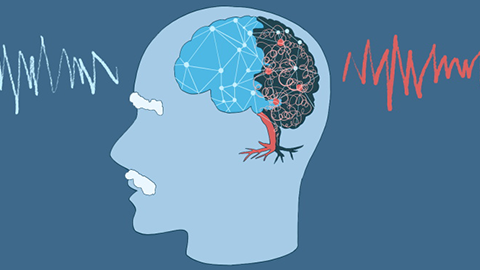Which medications can improve cerebral blood flow insufficiency?
Generally, cerebral hypoperfusion is often caused by cerebral vascular stenosis, vascular spasm, or slow blood circulation. Common symptoms include dizziness, headache, fatigue, and memory loss. Patients may take medications such as Flunarizine Hydrochloride Capsules, Ginkgo Biloba Extract Tablets, Nimodipine Tablets, Betahistine Tablets, and Aspirin Enteric-coated Tablets under medical guidance to improve their condition. Detailed explanations are as follows:
1. Flunarizine Hydrochloride Capsules
These belong to selective calcium channel blockers, which can prevent excessive calcium ions from entering vascular smooth muscle cells, thereby relieving cerebral vascular spasm, dilating cerebral vessels, increasing cerebral blood flow, and improving cerebral microcirculation. They are suitable for cerebral hypoperfusion caused by cerebral vascular spasm or cerebral arteriosclerosis, especially effective for cerebral hypoperfusion caused by vertebral artery type cervical spondylosis.
2. Ginkgo Biloba Extract Tablets
Containing total flavonoid glycosides and terpene lactones from ginkgo leaves, these tablets dilate cerebral vessels, reduce vascular resistance, improve cerebral blood perfusion, and inhibit platelet aggregation, thereby reducing the risk of thrombosis. They are suitable for cerebral hypoperfusion caused by ischemic cerebrovascular disease and can alleviate symptoms such as dizziness, headache, and memory decline.

3. Nimodipine Tablets
As a dihydropyridine calcium channel blocker, nimodipine has a high selectivity for cerebral vessels. It effectively dilates cerebral vessels, increases cerebral blood flow, improves cerebral circulation, protects vascular endothelial cells, and reduces cerebral ischemic injury. It is suitable for cerebral hypoperfusion caused by subarachnoid hemorrhage-induced cerebral vasospasm or other causes, and can relieve symptoms such as dizziness and limb numbness.
4. Betahistine Tablets
These tablets dilate cerebral vessels and improve microcirculation, increasing blood supply to the inner ear and brain while regulating vestibular function and reducing dizziness. They are suitable for cerebral hypoperfusion caused by Ménière's disease, inner ear ischemia, or cerebrovascular disease, particularly effective for patients with cerebral hypoperfusion accompanied by vertigo.
5. Aspirin Enteric-coated Tablets
As antiplatelet agents, these tablets inhibit platelet aggregation, prevent thrombus formation, avoid worsening cerebral hypoperfusion due to cerebral vessel occlusion, and prevent recurrence of cerebral ischemic events. They are suitable for cerebral hypoperfusion caused by cerebral arteriosclerosis or thrombotic diseases and require long-term use to maintain therapeutic effects. Follow medical advice to control the dosage.
Maintain regular rest patterns and avoid staying up late or overexertion. Eat a light diet, reduce intake of high-fat, high-salt, and high-sugar foods to prevent elevated blood lipids and vascular hardening. Engage in appropriate aerobic exercises, such as walking or jogging, to promote blood circulation and improve cerebral blood supply. If symptoms worsen or sudden limb weakness or slurred speech occur, seek medical attention promptly.











